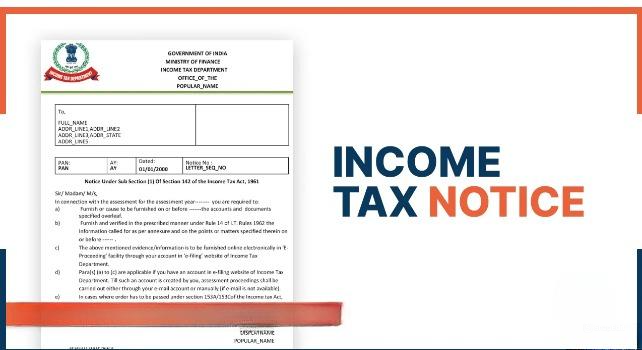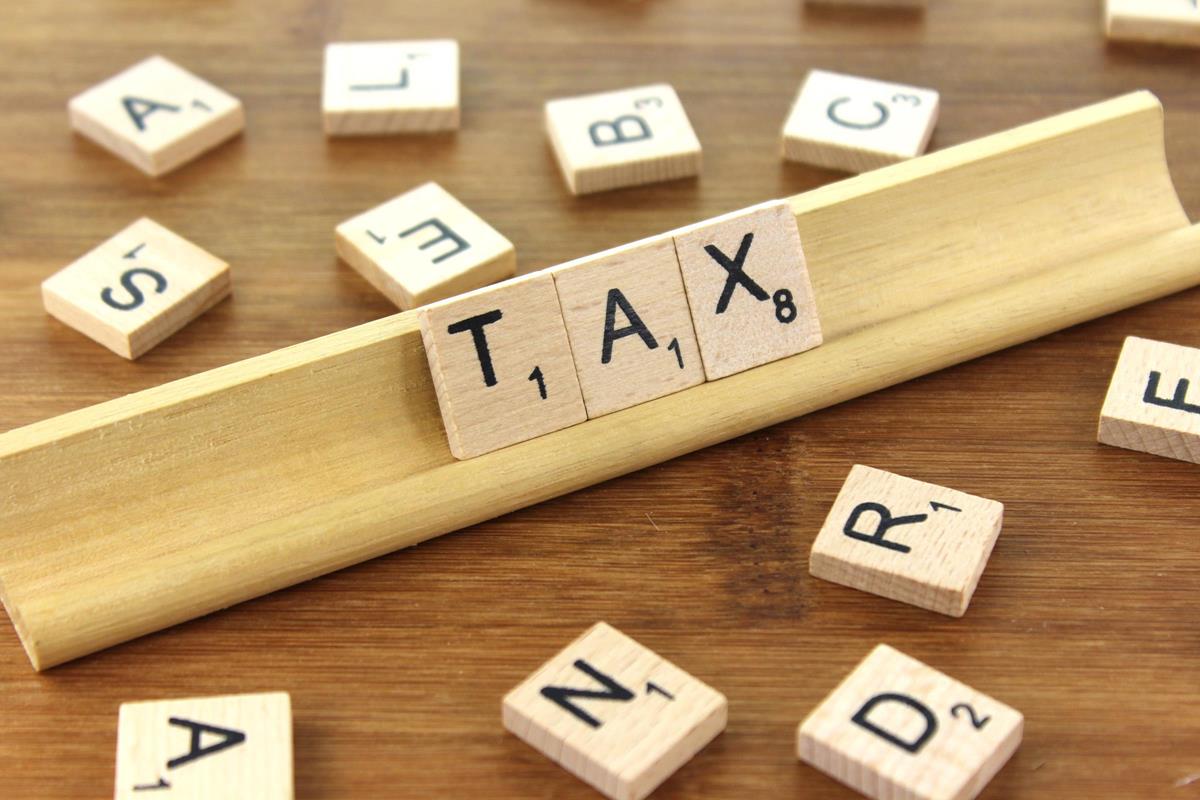
Other income Tax Notice
You should respond to this notice directly through the Income Tax Department’s online portal, eliminating the need to visit the I-T office physically. The response involves either submitting the requested documents or providing valid reasons for being unable to do so. Ignoring this notice is not advisable, as it could lead to further legal actions.

Notice under Section 142(1) – Inquiry Notice
An income tax notice u/s 143(2) is issued by tax authorities as part of the scrutiny assessment process u/s 143 (3). This type of scrutiny assessment may be undertaken by assessing officer in order to ensure that the tax payer has not understated income, paid lower tax or shown excessive loss to reduce tax liability.

Notice under Section 143(1) – Intimation
This is issued after you file your income tax return. The Income Tax Department has the authority to send this notice, often called an intimation notice, within a year after processing the return. It informs you of any additional tax due that wasn’t declared in your return or notifies you of any refunds due.
Notice under Section 143(2) – Scrutiny Assessment Notice
This notice is issued primarily for scrutiny purposes, which can be random or through computer-based selection. It aims to verify that the taxpayer has not understated income, claimed excessive losses, or underpaid tax in any way.
Notice under Section 148 – Commence Proceedings
This notice is issued when the income tax assessing officer believes that some income may not have been fully assessed, suggesting potential underreporting. Before any reassessment action is taken, taxpayers are allowed to present their case. Additionally, the assessing officer must provide reasons for suspecting that some income has escaped assessment.
Introduction
Every year, millions of Indian taxpayers file their Income Tax Returns (ITR). While most returns are processed smoothly, there are times when the Income Tax Department sends notices to taxpayers for various reasons. These notices can range from simple information requests to serious reassessments or scrutiny.
It’s important to know the types of income tax notices, understand what each notice means, and how to respond correctly and timely.
What Is an Income Tax Notice?
An Income Tax Notice is a formal letter or intimation sent by the Income Tax Department under the Income Tax Act, 1961. These notices are issued for reasons such as:
- Verification of filed returns
- Mismatch in information
- Unreported income
- Non-filing of return.
- Reassessment of income
- Recovery of tax dues
While receiving a notice may sound alarming, not all of them are negative. Some are routine and can be resolved quickly if handled properly.
Types of Other Income Tax Notices
1️⃣ Notice under Section 142(1) – Inquiry Before Assessment
- Why issued? If the taxpayer has not filed the return on time, or if the Assessing Officer needs more details to proceed with the assessment.
- What to do? Submit requested documents or explanations before the due date.
- Penalty? Non-compliance can result in best judgment assessment or penalty.
2️⃣ Notice under Section 143(2) – Scrutiny Notice
- Types of Scrutiny:
- Limited Scrutiny
- Complete Scrutiny
- What to do? Appear before AO with full documentation or respond online.
3️⃣ Notice under Section 148 – Reassessment of Escaped Income
- Why issued? If the AO believes that any income has escaped assessment (not declared in the ITR).
- Connected Section: Reassessment is done under Section 147.
- Time Limit: Normally within 3 to 10 years, depending on the case.
- What to do? Respond under Section 148A, then cooperate with reassessment under Section 147.
4️⃣ Notice under Section 139(9) – Defective Return
- Why issued? If your filed ITR has errors or missing information.
- Common issues: Missing bank details, invalid form, incorrect TDS details.
- What to do? File a revised return after correcting the defects.
5️⃣ Notice under Section 245 – Adjustment of Refund
- Why issued? If you are due to receive a refund, but you also owe past tax dues.
- What to do? Confirm or disagree with the adjustment on the income tax portal within 30 days.
Important Points to Remember
- Always check your email, SMS, and income tax e-filing portal for notices.
- Every notice has a unique DIN (Document Identification Number) — verify its authenticity.
- Respond within the specified deadline — delay can lead to penalties or further action.
- Keep records and documents ready to support your claims.
- You can respond through the income tax portal https://incometax.gov.in

Conclusion
Understanding the different types of Income Tax Department notices helps you stay compliant and confident. Not all notices are negative — many are simply part of the tax review process. Whether it’s an inquiry under Section 142(1), scrutiny under Section 143(2), or reassessment under Section 148, your response should be timely and supported with the right documentation.
When in doubt, consult a chartered accountant or tax expert. Timely action can save you from interest, penalties, and unnecessary stress.


